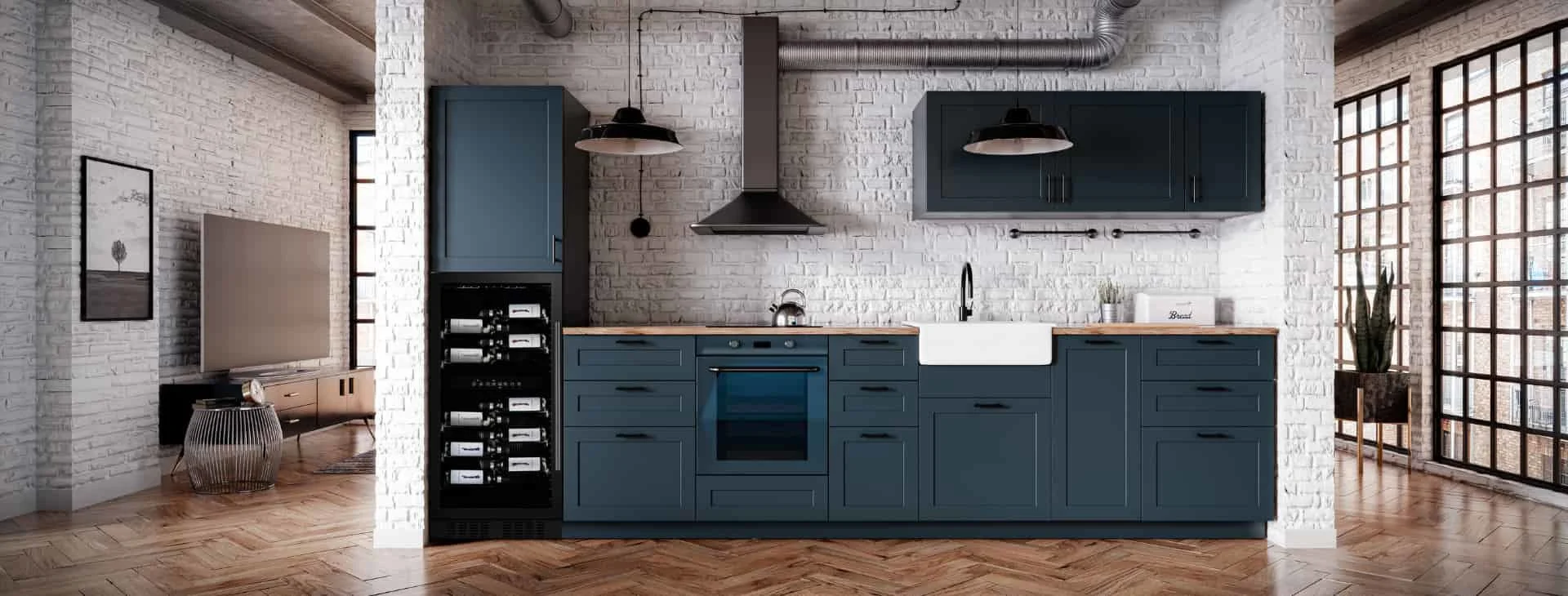
Wine coolers are an effective way of storing your wine, both for ageing and serving.
There are countless designs of wine coolers on the market in 2021 - you can find wine coolers with door and temperature alarms, display shelving, LED lighting, and of course, dual temperature zones.
But what are temperature zones? Why do you need them? How do they work? Keep reading to learn more about dual-zone wine coolers, including how they work.
A wine cooler is an appliance designed to store wine at the optimal temperature. Wine coolers can come in all shapes, sizes, designs, and colours, so you’re sure to find a wine cooler to store any sized wine collection in any home or business.
Most wine coolers are designed to accommodate standard Bordeaux bottles, but some will have adjustable or removable shelves for you to store larger-sized bottles. The majority of wine coolers allow store your wine horizontally or stack them on top of each other. This is to ensure that the cork remains moist and to prevent oxidization.
Oxidisation can cause the wine to deteriorate and lose its natural and nuanced flavours, and develop an unpleasant acidic taste and aroma. Wine coolers should protect your wine from UV rays which can also affect the flavour profile of the wine.
Humidity levels should be between 50% and 70% in a wine cooler - this is to protect the bottle and the cork, and ultimately the wine itself.
The main three designs of wine coolers are freestanding, built-in, and fully integrated. Freestanding units can vary massively in size, with some countertop models storing up to 16 bottles, and larger models storing over 100 bottles.
Freestanding units give you plenty of freedom when it comes to placement - and unlike built-in and integrated models, freestanding coolers aren’t limited to cabinet space, counter space, or kitchens.
Built-in models are designed to be installed under counters, and integrated wine coolers are designed to be integrated into your kitchen. Integrated models are similar to built-in models, but are completely enclosed by cabinet space instead of partially enclosed.
Most affordable wine coolers will only have a single temperature zone, but others may have dual temperature zones or multiple temperate zones. Single-zone wine coolers are set to a sole temperature that is maintained throughout the whole unit. This option is ideal for storing wine in the long term, or for preparing wine for serving - but not both.
Single zone units are also perfect if you prefer one type of wine - for example if your entire collection consists of Cabernet or other red wines. You’ll find that it’s usually smaller wine coolers that only offer one temperature zone - this is because single-zone wine coolers aren’t suitable for a large variety of wine.
Multi-temperature zones usually offer three different temperatures within a unit. Often, there will be two compartments for storing reds and whites for serving and one large section for storing wine for the long term.
A dual-zone wine cooler is exactly what you’d expect - a wine cooler that offers two temperature zones. In dual-zone wine coolers, there are either two compartments with separate temperature controls or one large section in which you can split the temperature zones into two.
This is ideal for medium to large-sized wine collections, or if you simply want to prepare wine for serving as well as having wine stored for the long term undisturbed. A single-zone unit may let you down if you have a variety of wines, or you enjoy both reds and whites. Single-zone units are ideal for storing just one type of wine at one set temperature.
If you have a wine cooler with dual temperature zones, then you can store your reds at their optimal storage temperature of 12°C and your whites and sparkling wines at a slightly lower temperature of 9°C or 10°C. You can find compact dual-zone wine coolers that can fit under countertops, but also larger units that can stand freely or be integrated next to your regular fridge.
A wine cooler typically features two compartments separated by a divider of some sort to ensure the temperature is regulated in both zones. Many wine cooler manufacturers will use a stainless steel divider between the two zones to ensure that the temperatures within the zones are fully regulated.
However, many multi-zone wine coolers feature polyvalent technology which distributes the air in a certain way to create three temperature zones in the same unit. Wine coolers generate cool air, and in order for a wine cooler to effectively regulate the temperature, it must have an effective air-generating system. Depending on the type of wine cooler, it may also need a form of coolant.
The cooler will generate vapour from the coolant and distribute the cool air through evaporator coils. However, in 2021, many wine cooler manufacturers avoid using coolants and use electric currents to do this instead.
With dual-zone wine coolers, you’ll find that two separate electric currents are used within two separate heating units. The two electric currents create two separate temperature zones within the cooler - and often, there will be two separate control setups in each zone.
The majority of modern wine coolers will have a control panel, whether it be integrated into the door, inside the unit, or even via your mobile phone. With the control panel, you should be able to control the temperature in each zone. Some wine coolers will also feature alarms that will sound when the temperature drops out of the set temperature.
Free shipping within Hungary
Service Request
Secure Payment